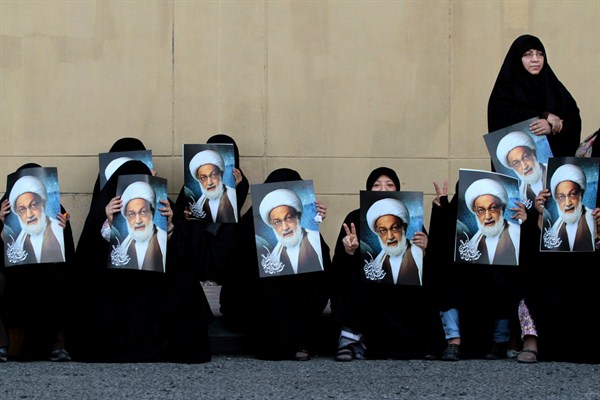Last week, authorities in Bahrain stripped Sheikh Isa Qassim, the country’s most prominent Shiite cleric, of his citizenship. His crime: “Serving foreign interests” and spreading sectarian discord.
The move wasn’t in isolation. One week prior, a Bahraini court suspended the activities of al-Wefaq, Bahrain’s main Shiite opposition group, on charges of terrorism, extremism and violence. Days before, Bahraini police detained Najeel Rajab, president of the Bahrain Center for Human Rights, during a raid on his home. Zainab al-Khawaja, a political dissident, also fled the country earlier this month after being released from prison. In May, an appeals court extended the prison sentence of Sheikh Ali Salman, a member of al-Wefaq, from four to nine years.
Bahrain’s straitjacket on dissent is nothing new, but it has visibly tightened recently. “Bahrain has been heading down this path for some time,” says Nicholas McGeehan, the Bahrain, Qatar and United Arab Emirates researcher at Human Rights Watch. “It’s clear that [the government] is not interested in political reform. And now it has put its foot on the gas in terms of cracking down.”

